







The founding mission of UWC Atlantic 60 years ago was ahead of its time. Today that vision of deliberate diversity, the power of uniting divergent perspectives to foster understanding and overcome conflict, is gathering momentum across the world.
The world today compared to 1962 when the college opened, is vastly different. The experiential learning and service on which our mission was built (sea rescue) has advanced over the years and moved to more strategic locations along our coastline.
So the burning question now is how can we chart our course over the next 10 years, holding all that has gone before, our history and pioneering ethos, at the heart of our educational endeavour.
My aim is that this 10 year plan answers that fundamental question so everyone who is part of our community can be informed of and united around our vision. Our community is more than just our current students, it encompasses both our present, our past and our future. We aim to envelop our current students, our prospective students and their families, our alumni and the educational and local community together to share in our vision.
The first step towards achieving this is the purpose of UWC Atlantic as it celebrates its historic 60th anniversary and looks boldly to the future.
Naheed Bardai, Principal, UWC Atlantic
To develop bridge builders and compassionate leaders, empowering them to go beyond treating symptoms to understand root causes and initiate transformative solutions to human and environmental crises. We are passionate that learning becomes most powerful when used for the greater good.
UWC Atlantic impacts the world by empowering deliberately diverse students to spark systems transformation where needed.
At the height of the Cold War our founder, radical educationalist Kurt Hahn, sounded a clarion call to young people around the world - ‘You are needed!’
The first school in a now global movement, UWC Atlantic was his dream realised: Young people from divergent backgrounds serving together to forge a common understanding and subdue conflict.

That pioneering mission has evolved with our focus now on systems transformation - to understand how our societies are structured, how they unite and divide and, importantly, impact our planet.
Then we ask: “What action can we take to create more equality, compassion and sustainability?”
Sixty years on, our call to young people sounds as loudly as ever.
Systems transformation is a phrase we often think of in the context of global conversation.
Generally, it is understood to mean required changes to policy, practice, power dynamics and social norms that underlie a given societal issue, problem or unfairness. It is often underpinned by collaboration of diverse perspectives and can be applied on a local, national or global level.

The abolition of slavery, women’s suffrage and black lives matter are all examples of systems transformation.
Work within this field encompasses the challenge set for students and how they can impact the world. Our ambition statement is our North Star, our unequivocal purpose as a college.
Fundamental to our strategy is an innovative experiential educational pathway which shines a spotlight on transformative change, systems leadership and just futures.This pathway, known as the Systems Transformation Pathway: Leadership For Just Futures is set to transform the future of UWCA and our students.
In partnership with the International Baccalaureate, this pioneering educational programme is being piloted by 20 students beginning in September 2023.
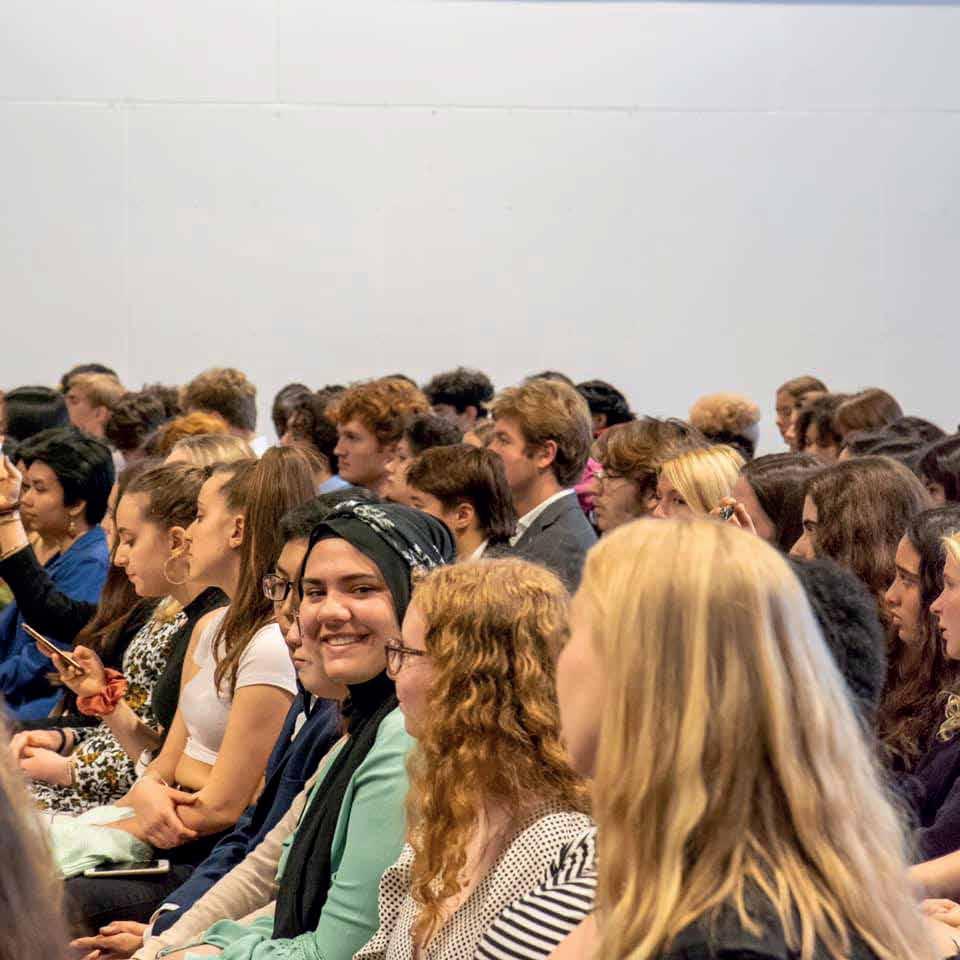

Although the initial cohort may be small, this pathway is the first, single biggest manifestation of our overall educational vision, emblematic of all we do at UWC Atlantic.
This new pathway will transform our campus in so many different ways across the valley, woodlands and seafront, while also addressing our own sustainable energy transition. It brings many opportunities not just to our students, but also to the college and our global community, and will further strengthen our bond with our valley and its community.
It is built around three pillars which align with UWC’s founding mission: UWC makes education a force to unite people, nations and cultures for peace and a sustainable future.

“Graduates of this new IB Diploma pathway will leave UWC Atlantic uniquely empowered. They’ll learn how to organise at scale and address systemic challenges, balancing the ‘why’ of systems thinking with the ‘now what?’ of transformative change, inspired to secure a just future for our people and planet. This collaboration between IB and UWC Atlantic is vital in paving the way for the future of the IB Diploma Programme more generally.”
 - Olli-Pekka Heinonen, IB Director General
- Olli-Pekka Heinonen, IB Director General
The traditional concept of peace can be defined as the absence of war, conflict or injustice. Moving away from global conflicts, our focus on what peace means is on our human-made systemsthe ways in which our various societies are structured, the priorities and values on which they operate and importantly, how they impact and conflict with one another.
Different systems or ways of life operate in different areas of the world. Even so, they are deeply interconnected. The ways in which our human-made systems operate in Europe, for example, has a direct impact on South America and vice versa.
We will strive to examine inequities that exist as a result of the intersection of our different systems.
Fundamental to that we will endeavour to understand and analyse our individual world views; how they are encumbered with deeply-entrenched assumptions, blind-spots, prejudices and biases (conscious and unconscious).
The ways we think, our worldviews, are the product of a multitude of factorsbirth, upbringing, education, experience, environment, culture, wealth - all contributing to how we see the world, both personally and nationally. Many of us are not even aware or conscious of the key influences that directly shape how we interpret the world around us.
It is by exploring divergent mindsets that we open up the opportunity of greater understanding and compassion. This is woven into our DNA at UWC Atlantic; through our deliberate diversity we strive to create on campus a microcosm of the world.
Living and learning together, students are exposed to mindsets, cultures and priorities distinct from their own. This presents a 24/7 reality of having to see the challenges of everyday life from disparate perspectives.
To understand how someone from a different socio-economic background, country and culture perceives the world, enables us to identify our own stereotypical thinking. What we might initially see as ‘the other’, we grow to identify and connect with on a deeply human level. ‘The other’ disappears and we foster solidarity through understanding and respect. This is the power of Kurt Hahn’s founding vision.
Then we have the opportunity to expand on this and explore how it impacts on a global level and examine ways we can begin to make a difference by embarking on a sustained effort to bring about positive change.
How consensus is formed and influenced
The process of conflict-resolution
How and why do systems change?
Restorative practice
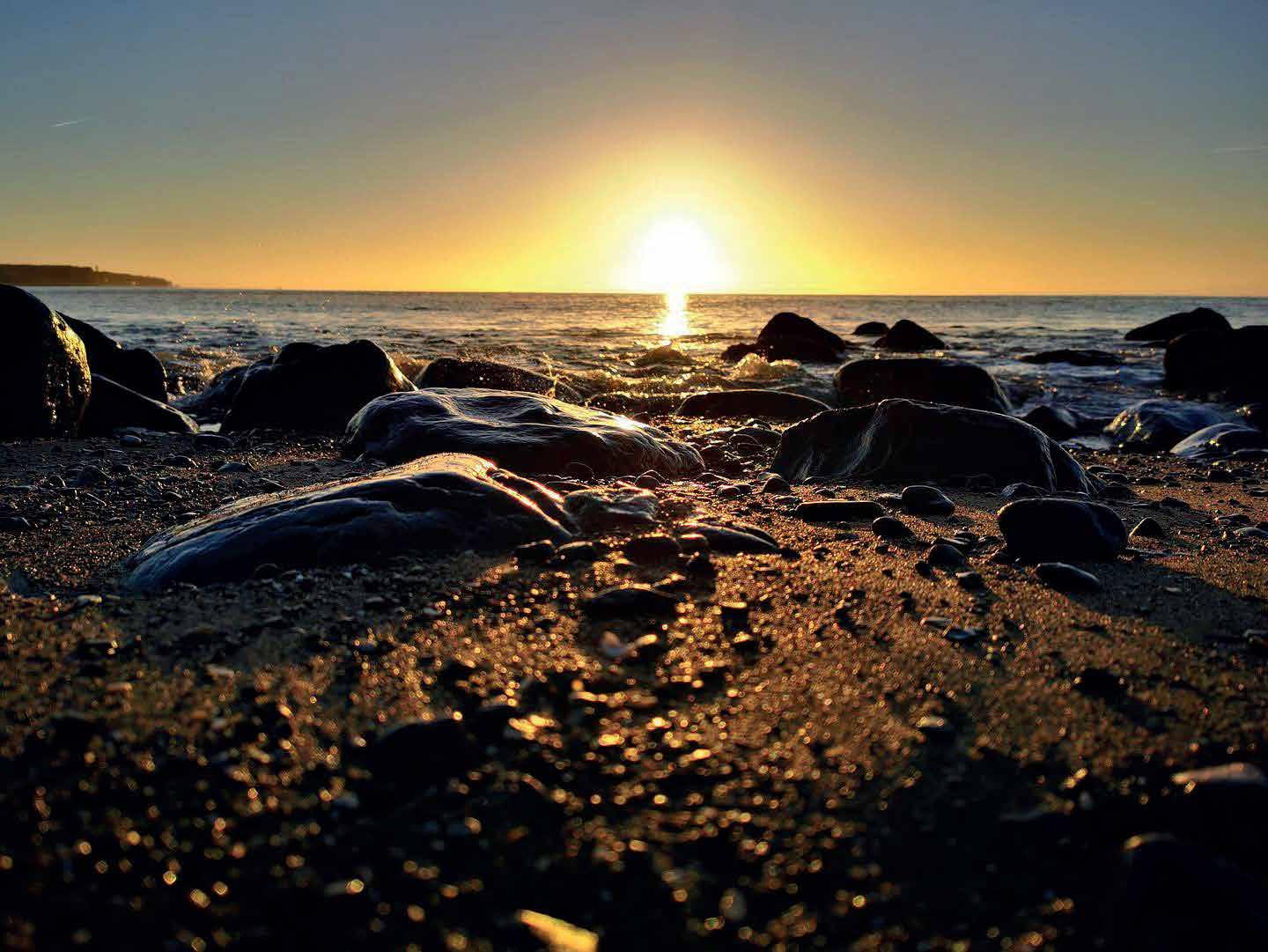
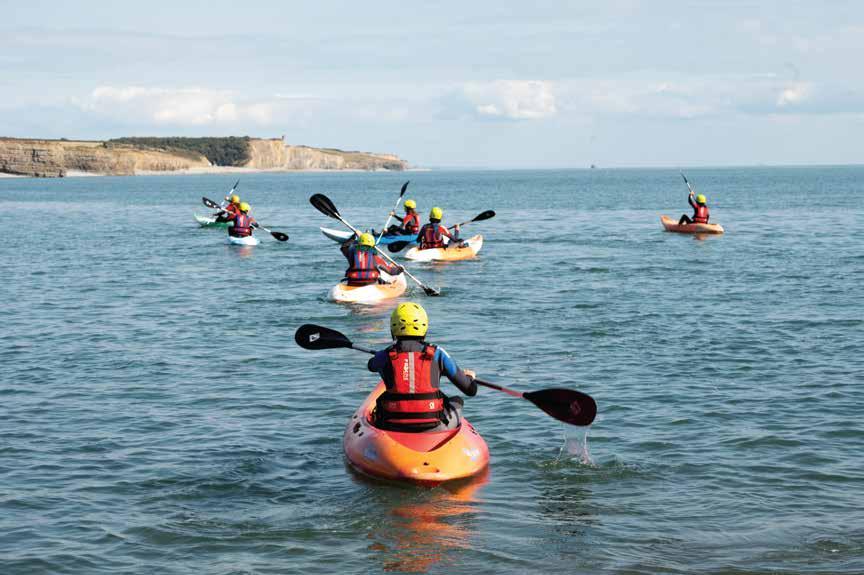
Unpacking unconscious confirmation bias
Self-reflection
The impact of microaggressions on wellbeing
How to harness multiple and diverse perspectives
Effective collaboration techniques
The role of power
Sustainability can relate to economics, society and the environment. Our focus in our systems transformation pathway is on environmental sustainability.
This is because it is impossible to understand the impact of human-made systems without taking into account systems that operate in the natural world.
Human values, desires and behaviours shape and are shaped by changes to the natural environment. The two work in synergy; what affects one, affects the other, back and forth in a perpetual, often destructive cycle.
The age we live in is known as the Anthropocene Epoch. One dictionary defines it as: The current geological age, viewed as the period during which human activity has been the dominant influence on climate and the environment.
Our lifestyles are deeply interconnected with our environment, both near and far. Crucially, this is fundamental to peace. A scarcity of resources in one country or region extracted to meet demand elsewhere in the world, can ignite economic and political instability.
This can then trigger conflict leading to migrations and population displacements. If people are forced to cross militarised borders, more conflict can ensue leading to further suffering and continued repercussions.
The issue of climate change can further aggravate humanitarian crises by acting as a “threat multiplier”. More extreme and frequent weather events exacerbate the plight of communities with insecure access to water, food, or energy.
The unequal causes of the climate emergency often impacts unfairly on certain communities.
Historical exploitation and ongoing overconsumption in more affluent parts of the world, adds another layer of complexity to the threat hanging over ecosystems and the vulnerability of communities who depend on them.
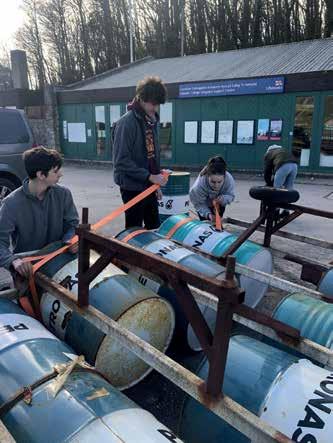
To understand the issues at stake, the pathway will focus on:
Environmental justice
Climate science and impacts
Ecological and Indigenous economics
Bioregionalism and localisation
Biodiversity and conservation
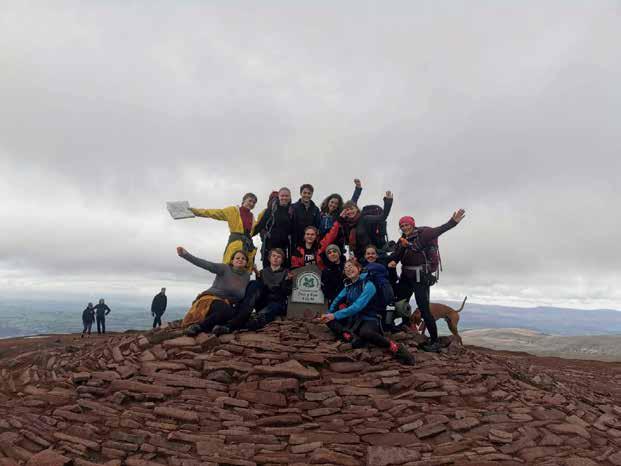
Ecosystems restoration and stewardship
Climate mitigation and adaptation
Resilience and vulnerability
Nature-based and technological solutions

Futures thinking and foresight
Radical imagination and climate optimism
As well as forging partnerships outside the college, we will address systemic questions directly on campus by harnessing the power of our deliberate diversity.
How can we make changes around the food we eat, how we source it and waste it? Similarly, how can we overcome the environmental challenges of living in a 12th Century castle? The need for systems change is present in every aspect
Our historic seafront begins a new iteration in its esteemed history, to play a key role in the field of maritime and coastal exploration and research. Our own coastline and interaction with the divergent environments and terrains on our doorstep and further afield in Wales, continue Hahn’s core value of physical challenge.
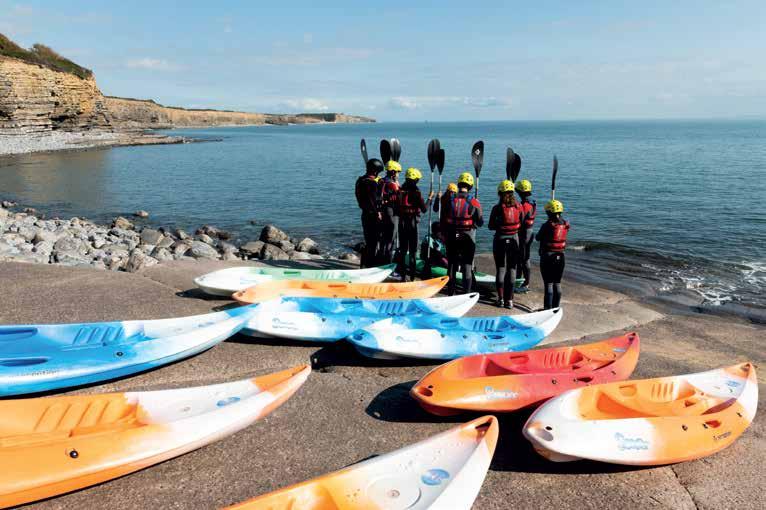

The lifeblood of UWC Atlantic and Kurt Hahn’s vision, experiential learning is the fulcrum on which the new educational pathway turns.
Our founder, a key figure in the development of experiential education, was passionate that in order to learn effectively students had to get out of the classroom and do things. This lived experience, he espoused, would not only ignite individual passions but unite deliberately diverse students through service to others; they experience first hand how, despite their differences, they are reliant on each other to overcome a challenge for the greater good.
The ethos of our new pathway will enfuse all existing structures and activities at UWC Atlantic.
Once embedded, we will move to realising our ambition to establish a Centre for Systems Transformation at the college. This will connect all college activities - project weeks, Lighthouse innovation, conferences, our Changemaker curriculum and the New Educational Pathway. Together they will form the Centre for Systems Transformation.
CENTRE FOR SYSTEMS TRANSFORMATION
Partnerships have long been a part of college life and UWCA has signed a historic agreement with the International Baccalaureate which promises to have a long-lasting impact on education globally. Endorsed and supported by the International Baccalaureate, we can scale our ambition statement across the UWC Movement. Our partnership with the International Baccalaureate is as strong as ever, and this collaboration between the IB and UWC Atlantic is vital in paving the way for the future of the IB Diploma Programme.
Over the next 10 years, the Centre will also forge new partnerships with research bodies, universities and industry, to enrich the impact of this systems transformation.
Our focus will continue to meaningfully contribute to our local community and wider organisations across Wales as we have done for six decades; we want to ensure that UWC Atlantic is not just in Wales but a part of Wales.
Wales is a second home for thousands of our alumni spanning the globe in every walk of life. We hope through systems transformation we can continue to play our part and become even more engaged with and of service to the nation we are so proud to call home.
To achieve our ambition statement we have four key pillars with 31 goals.
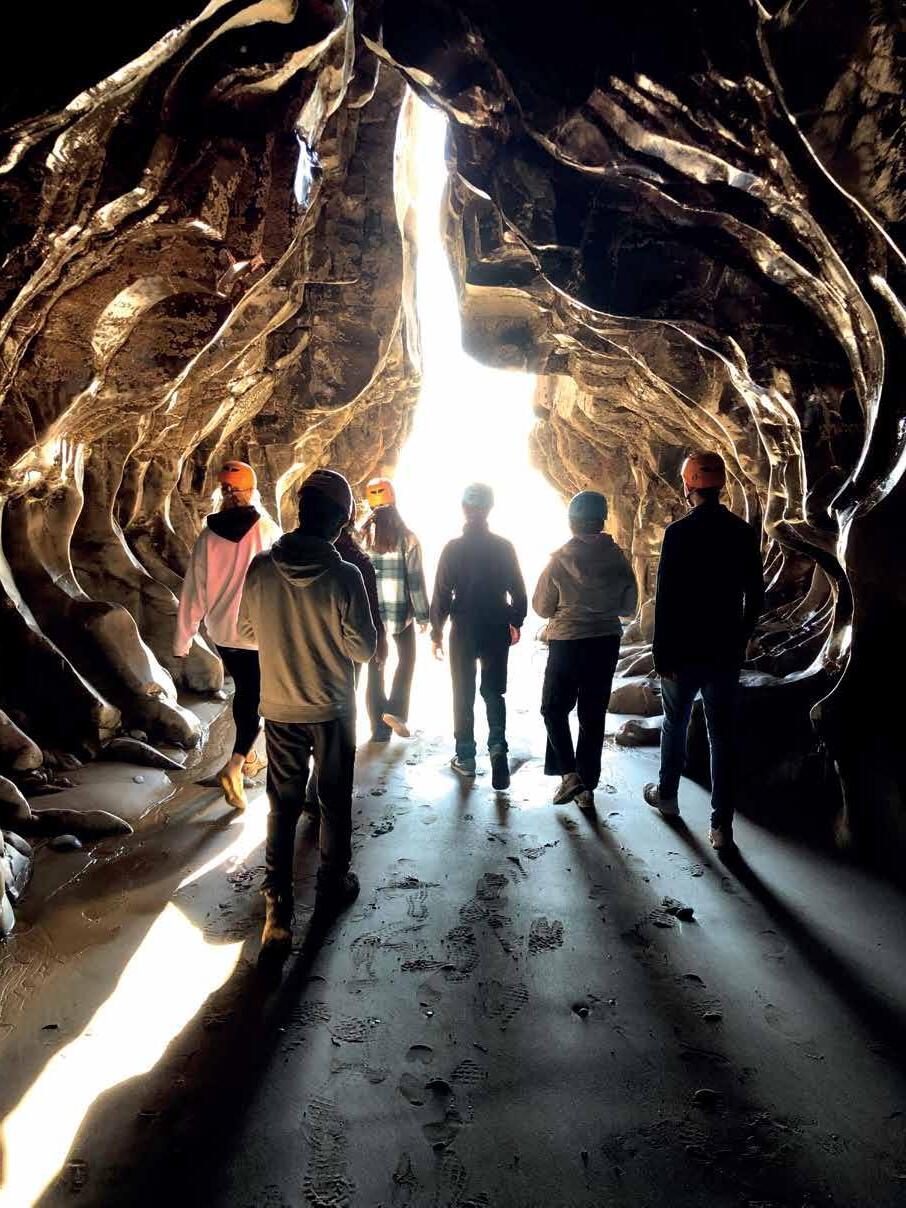
WE WILL BUILD A COURAGEOUS FUTURE: empowering students to act in creating a more peaceful and sustainable world
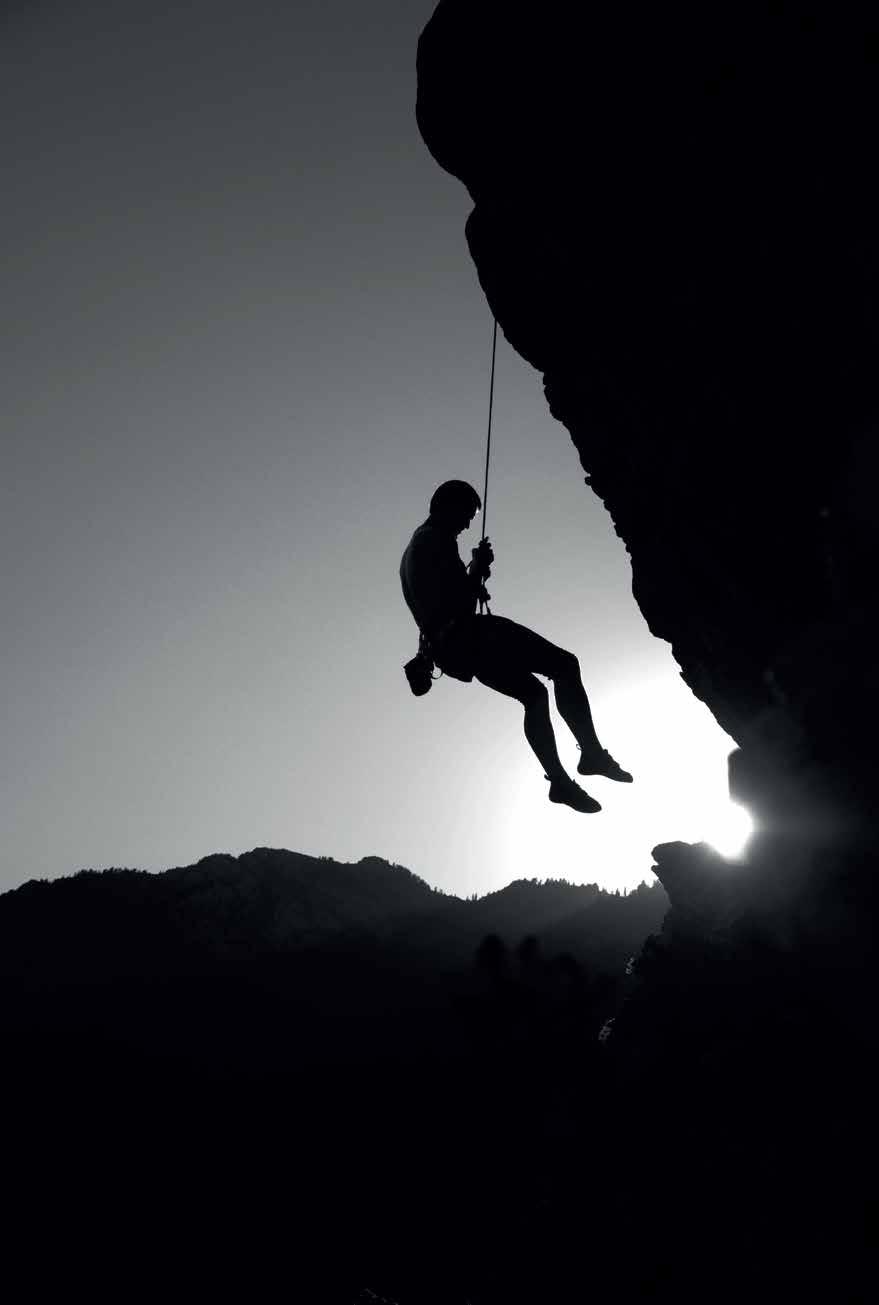

To align the entire College in pursuit of our educational vision and UWC mission.
To be a global thought-leader in the education and empowerment of students to tackle the most pressing challenges of their time at the intersection point of our unjust human systems and fragile natural systems through the creation of a new educational pathway and centre for systems transformation.
To increase the socio-economic diversity of the student body so that the equivalent of 60% of students are on full scholarship (financial assistance) by 2032.
To create an exciting, challenging and altruistic outdoor education programme as a core component of a UWC Atlantic experience.
To evolve our seafront and neighbouring seafront areas into a place where sea-going activities (sea rescue, lifeguarding, seafront activities) are flourishing.
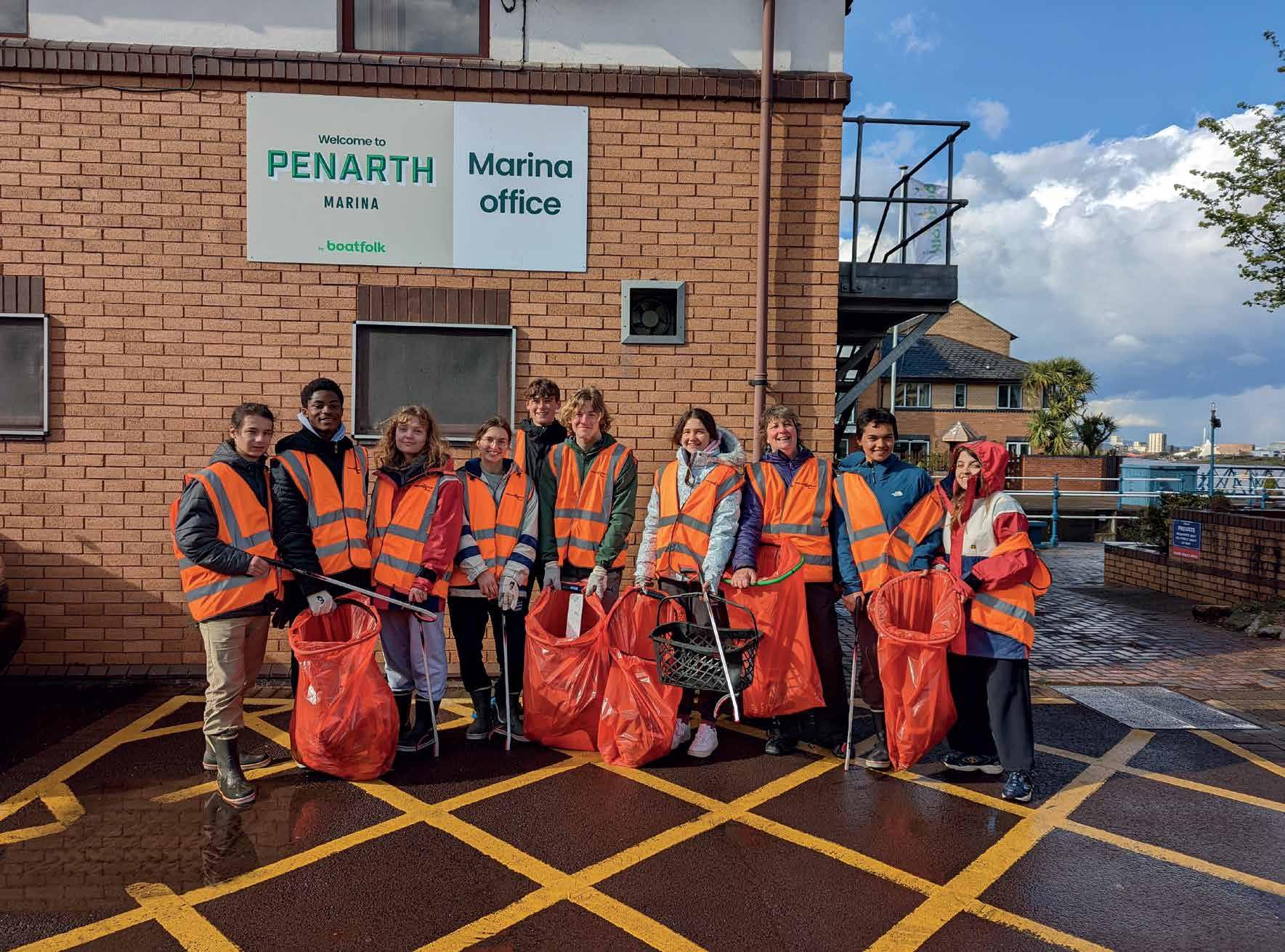
8
To have our students take deep and sustained action in the areas of social and climate justice through service and service learning in the United Kingdom or their home context.
To create a culture of safeguarding with sector leading provision, robust structures and an environment where students feel safe.
To embed a wellbeing framework into the structures and culture of the College to enable each student to flourish.
To create an environment where UWC values are lived by encouraging positive student behaviour through education.
To foster pluralism at the College where each member of the community is valued for their differences and similarities, and where everyone feels like they belong.
We will create an ENGAGED
building trust, relationships and capacity



PILLAR THREE
We will build a SUSTAINABLE HOME
Through our connection to the natural and built environment

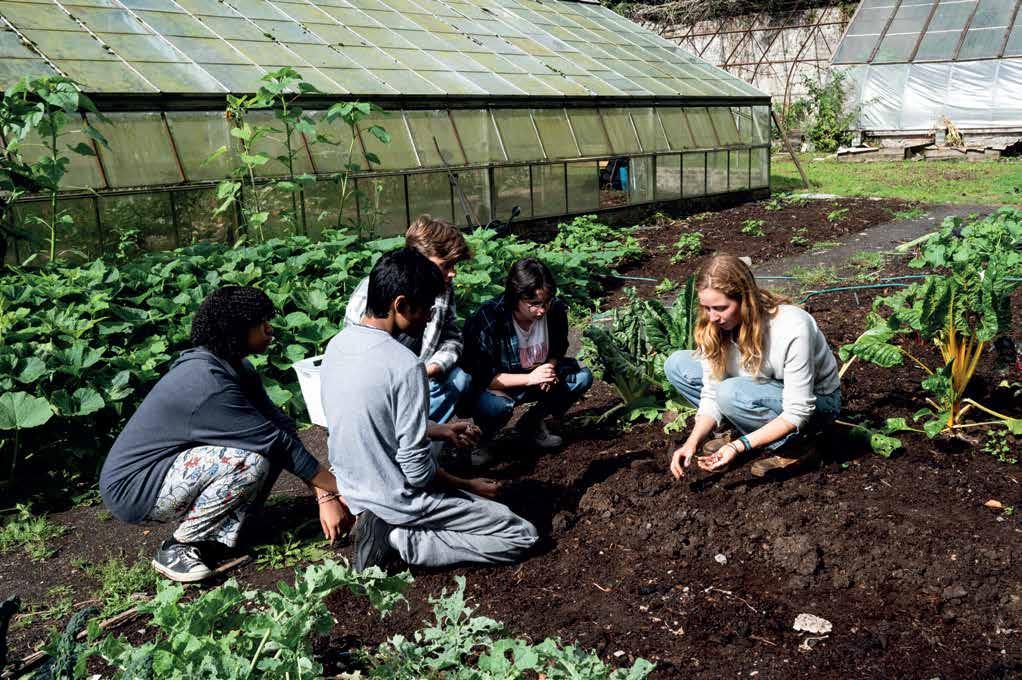
To achieve a 50% reduction in our carbon emissions by 2032 as compared to a baseline of 2022 and achieve net-zero carbon by 2040.
3
To have a world-class, inspirational and environmentally sustainable learning environment, both indoors and out.

4
To have consistent, high quality, comfortable and environmentally sustainable student residences that create an equal student experience by 2029.
To restore the castle and seafront, the fulcrum on which the spirit of UWC Atlantic turns, and have a long term preventative planned maintenance schedule and sustainable source of funding by 2032.

PILLAR FOUR enabling our purpose and promise
We will foster a culture of INSPIRED COMMITMENT
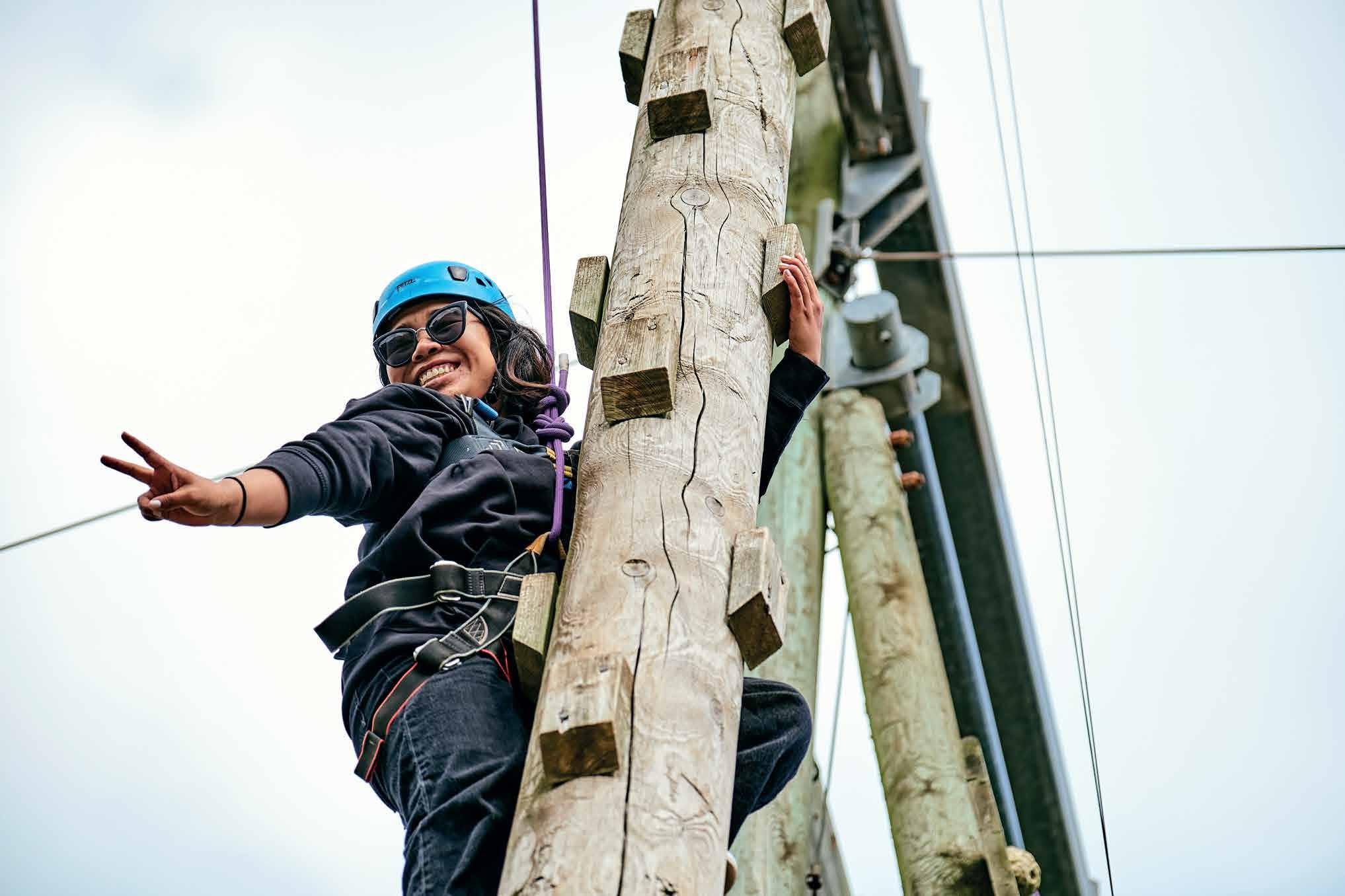
1
To build greater trust and relationship with current and prospective donors to choose the college as one of their top philanthropic priorities.

To develop a portfolio of income generating activities that coexists in harmony with student life while maximising profit.
To create a financial model which enables us to deliver our educational promise, invest in our people and maintain and develop our campus.
To partner and take a leading role within the UWC movement to shape the student recruitment and admission process targeted towards fee payers.
To launch an ambitious fundraising campaign that will allow the College to raise enough funds to cover our ambitious goals.

- Naheed Bardai, Principal, UWC Atlantic